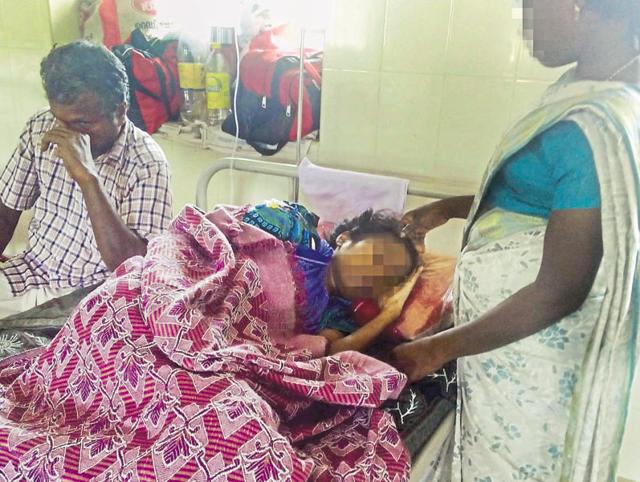Seniors or foes? How ragging in our colleges is pushing students to the edge
Mild hazing is common across campuses but it is no longer just fun and games; a way of new entrants getting initiated. Extreme bullying exists in equal parts too. Efforts to curb the menace, which has driven many freshers to suicide or maimed them for life, have proven ineffective.
She loves dosa and appam but can’t have them now because college seniors forced toxic phenyl-based toilet cleaner down her throat, burning her food pipe.

Fed by a feeding tube inserted through her nose, the 19-year-old nursing student from Kerala’s Kozhikode is battling for her life. With great difficulty she recounted before police the May 9 incident that reflected a cruel tradition called ragging, rampant across college campuses in India.
“I was summoned by some seniors to their room and asked to write down names of two seniors I loved most and hated badly. Scared, I quickly gave four names. The two I said I despised were angry,” she said.
They barged into her hostel room and poured a cleaning liquid into her mouth, the teenager told police.
Read: Kerala nursing student ragging: Three arrested on attempt to murder charges
Mild hazing is common across campuses but it is no longer just fun and games; a way of new entrants getting initiated. Extreme bullying exists in equal parts too. Efforts to curb the menace, which has driven many freshers to suicide or maimed them for life, have proven ineffective.
Students that Hindustan Times spoke to said in most cases, seniors and college authorities collude to coerce the victim into silence, asking them not to name them as that would spoil their future.
Only a handful of students come forward and complain, said Dr Kushal Bannerjee, co-founder of Students Against Violence in Education (SAVE), an anti-ragging NGO. “Many of them feel helpless and are told not to make a big deal about the tradition. There is also the fear that they have to remain in the institution for years and, therefore, many cases of violent ragging go unreported.”
In 2009, the University Grants Commission set up an anti-ragging helpline after the death of 19-year-old Aman Kachroo, a first-year medical student in Himachal Pradesh. He died in hospital after being brutally ragged by seniors, who were allegedly drunk.
The death triggered national outrage and a probe panel appointed by the Supreme Court found that the teenager had repeatedly complained to college authorities and asked for help. But he was ignored.
Read: India needs an anti-ragging act to curb the menace
Calls made to the UGC helpline don’t yield affirmative action too. A top official of the UGC, the country’s higher education regulator, said the helpline received more than 3.1 million calls since it was introduced. The commission flagged 3,512 of these as complaints against ragging.
Freshers have a fear about reporting their seniors. Close to 40% students in colleges across India face some amount of ragging but only 8.6% report such incidents, found a study funded by the UGC on the directions of the top court. “We do believe there is under-reporting because students are scared of seniors,” a UGC official said.
Many families struggle because there is no central statute to deal with the crime. Victims are often confused about the laws, said Gaurav Singhal, the national coordinator of SAVE. The closest thing to a central legislation is the UGC Regulations on Curbing the Menace of Ragging in Higher Educational Institutions, 2009. It says all colleges have to constitute an anti-ragging cell and make students sign an undertaking that they will not indulge in the “sadistic” practice.
But colleges seldom respond to complaints, alleged the Varanasi-based family of 20-year-old medical student Nishant Upadhay, who committed suicide in his Chhattisgarh-based college in November 2014. Brother Ishaan said complaints to the hostel warden went unheeded. He recalled the call the family received from the university dean on that fateful day after the Diwali break: “He said my brother had locked himself in his room and that they suspected he had harmed himself. My uncle said, ‘break the door down’. In a few minutes, we got another call: ‘he’s hanged himself’.”
Read: Virat Kohli may wield his bat against ragging
Organisations such as SAVE and the Aman Kachroo Trust invest heavily in spreading awareness and counseling students. The traumatised victims need mental support. “They need someone to listen and talk to, it is also paramount that they know their rights,” Singhal said.
Get Current Updates on India News, Lok Sabha Election 2024 live, Infosys Q4 Results Live, Elections 2024, Election 2024 Date along with Latest News and Top Headlines from India and around the world.



